artificial intelligence
OpenAI Delays Release of Controversial Voice Feature, Sparking Backlash
Published
6 days agoon
By
admin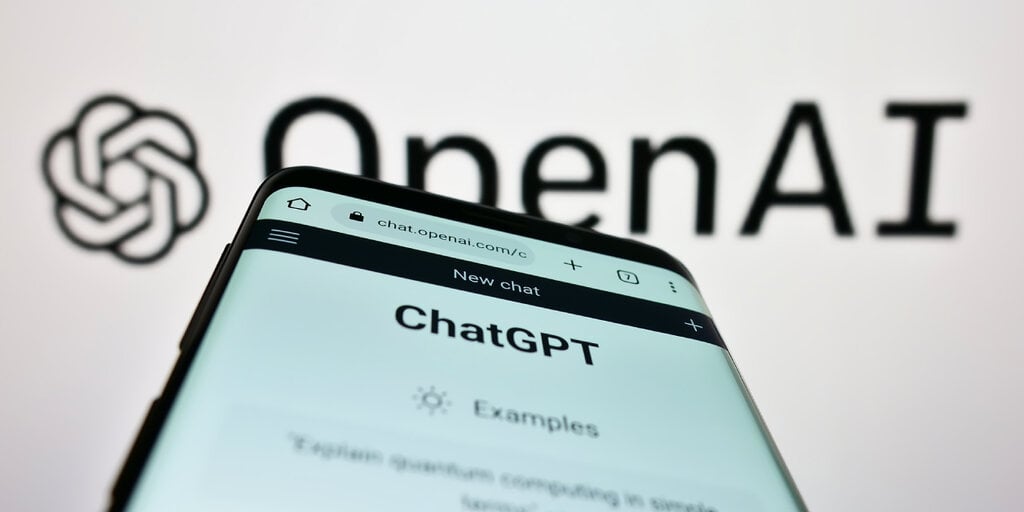
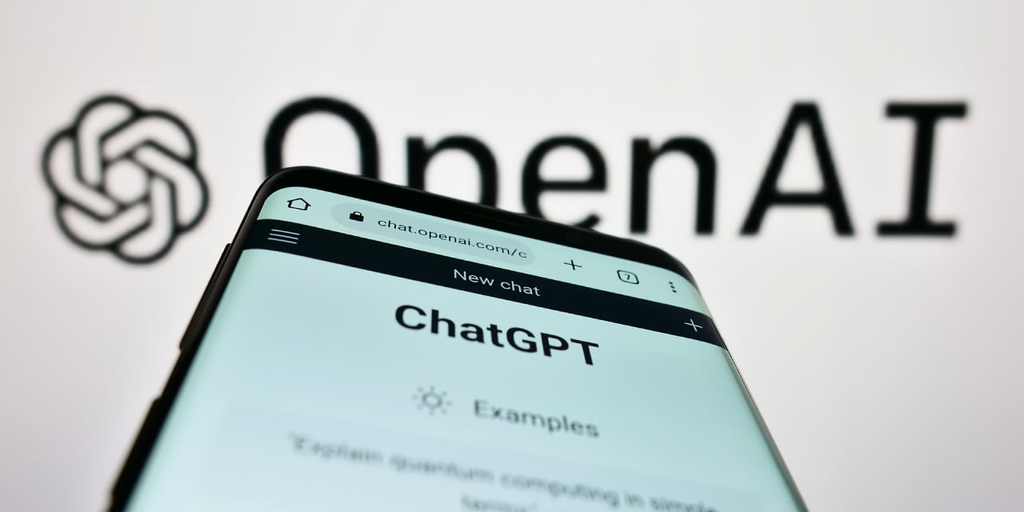
OpenAI, the artificial intelligence research company behind ChatGPT, pushed back the launch of its Voice Mode on Wednesday, a standout upcoming feature that made waves when it was showed off at its product update last month. The company said it needs “one more month” to work on it—and the announcement has sparked harsh criticism from users and the AI community.
Its Voice Mode was perhaps the most compelling announcement at the OpenAI event, unveiled alongside the release of its latest large-language model, ChatGPT-40. It allowed users to interact with the chatbot via voice and engage in a natural-sounding conversation.
The demonstration also invited comparisons to the science fiction film “Her,” featuring a virtual companion voiced by actress Scarlett Johansson. Johansson soon threatened OpenAI with legal action over the similar-sounding voice, and the company soon announced it was removing the voice from its library.
In announcing the delay, OpenAI said it was unable to advance the feature in a limited “alpha” release in June as planned because it needed more work.
“We’re improving the model’s ability to detect and refuse certain content,” the company explained. “We’re also working on improving the user experience and preparing our infrastructure to scale to millions while maintaining real-time responses.”
We’re sharing an update on the advanced Voice Mode we demoed during our Spring Update, which we remain very excited about:
We had planned to start rolling this out in alpha to a small group of ChatGPT Plus users in late June, but need one more month to reach our bar to launch.…
— OpenAI (@OpenAI) June 25, 2024
Users didn’t like what they read, and OpenAI’s announcement quickly met a wave of disdain from the AI community.
Many critics were quick to point out OpenAI’s history of overpromising and underdelivering, comparing its track record to its competitors. “Be like Anthropic,” tweeted AI enthusiast Ashutosh Shrivastava. “They don’t demo and create hype only to go silent for 3-4 months.”
AI Youtuber Matt Wolfe claimed the delay is part of OpenAI’s business strategy.
“Show off something exciting to demonstrate how far ahead of everyone else you are and then never actually let people use it,” he said, calling the move the “Sora Treatment.” Generative video tool Sora is another OpenAI product that has received extensive praise but is still not widely available.
Looks like we’re getting the “Sora Treatment” from OpenAI with the Advanced Voice Mode… Show off something exciting to demonstrate how far ahead of everyone else you are and then never actually let people use it. https://t.co/xZ8a9GPD0U
— Matt Wolfe (@mreflow) June 26, 2024
Benjamin De Kraker, creator of FinalFrame AI, shared his frustrations, claiming that OpenAI touts specific features that are later killed due to lack of use or interest.
“Plugins died, GPT Store died, Voice is delayed, Memory is mediocre,” he tweeted, “Core model and API are solid, but all the ‘this changes how people use AI!’ hype stuff has bombed.”
The delay has also led many users to question the value of their ChatGPT Plus subscriptions. Peruvian medical researcher Patrick Wieghardt suggested that it might be time to end his subscription, while another user stated that they had already canceled theirs. “Right now I see no point in paying for what you’re offering for free anyway,” an AI newsletter publisher wrote.
Some observers think the full release of Voice Mode could be several months away. Ryan Morrison, AI Editor at Tom’s Guide, said he believes mid-November is a more realistic timeframe—after the U.S. elections.
I’ve said for a while that I don’t think we’ll see the full suite of generative audio, video and image features OpenAI unlocked with Sora and Omni until after to the US election in November.
They say Fall for Plus users for Advanced Voice. So maybe mid-November is about right… https://t.co/paug2P2367
— Ryan Morrison (@RyanMorrisonJer) June 26, 2024
OpenAI didn’t immediately respond to a request for comments from Decrypt.
Edited by Ryan Ozawa.
Generally Intelligent Newsletter
A weekly AI journey narrated by Gen, a generative AI model.
Source link
You may like


Taliban jailed 8 traders for holding and using crypto


Solana Struggles to Rise Amid Bitcoin Price Uncertainty


Developing in Web 3.0 Is on the Cusp of a Breakthrough


Digital Shovel Sues RK Mission Critical for Patent Infringement on Bitcoin Mining Containers


crypto will get positive regulation ‘no matter who wins’ election


Toncoin (TON) v Cardano (ADA): On-chain Data Show Gains
artificial intelligence
AI Won’t Destroy Mankind—Unless We Tell It To, Says Near Protocol Founder
Published
2 days agoon
July 1, 2024By
admin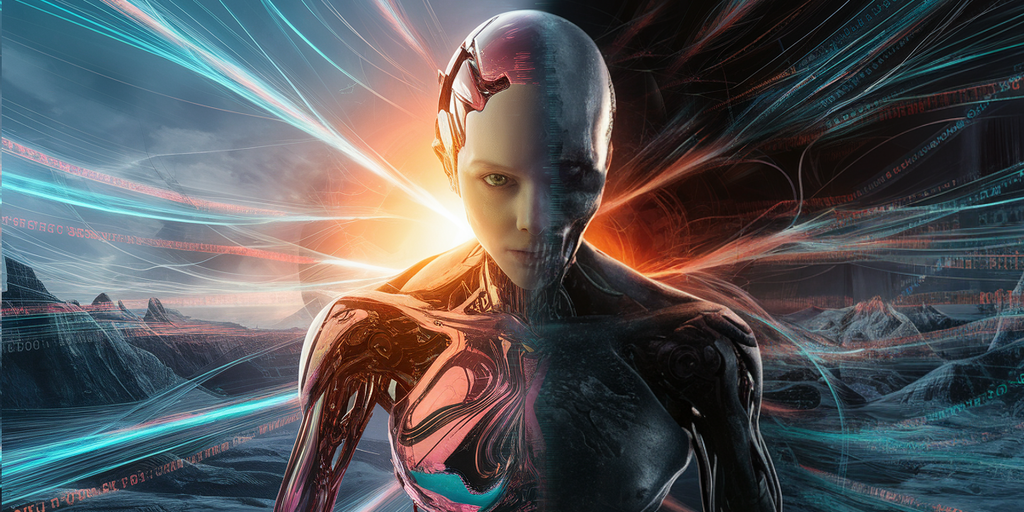
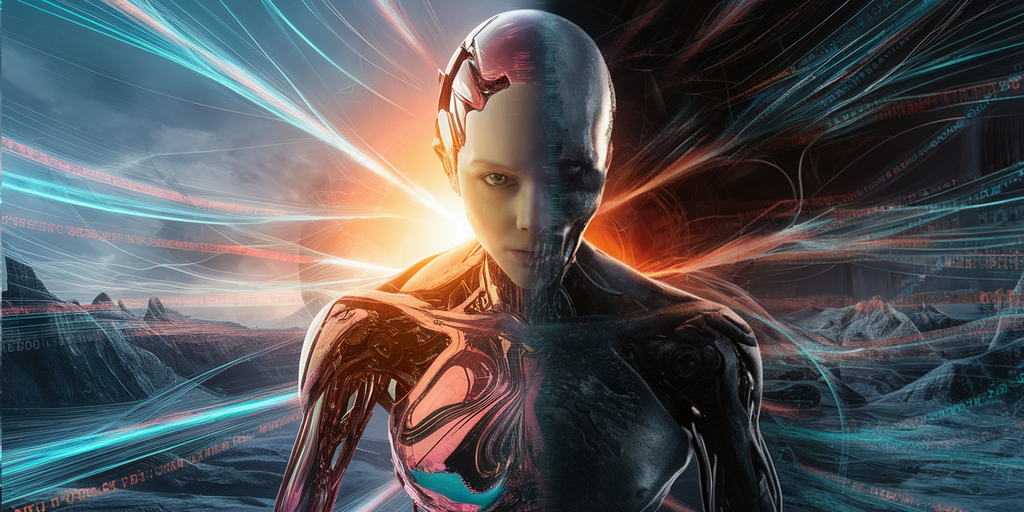
Artificial Intelligence (AI) systems are unlikely to destroy humanity unless explicitly programmed to do so, according to Illia Polosukhin, co-founder of Near Protocol and one of the creators of the transformer technology underpinning modern AI systems.
In a recent interview with CNBC, Polosukhin, who was part of the team at Google that developed the transformer architecture in 2017, shared his insights on the current state of AI, its potential risks, and future developments. He emphasized the importance of understanding AI as a system with defined goals, rather than as a sentient entity.
“AI is not a human, it’s a system. And the system has a goal,” Polosukhin said. “Unless somebody goes and says, ‘Let’s kill all humans’… it’s not going to go and magically do that.”
He explained that besides not being trained for that purpose, an AI would not do that because—in his opinion—there’s a lack of economic incentive to achieve that goal.
“In the blockchain world, you realize everything is driven by economics one way or another,” said Polosukhin. “And so there’s no economics which drives you to kill humans.”
This, of course, doesn’t mean AI could not be used for that purpose. Instead, he points to the fact that an AI won’t autonomously decide that’s a proper course of action.
“If somebody uses AI to start building biological weapons, it’s not different from them trying to build biological weapons without AI,” he clarified. “It’s people who are starting the wars, not the AI in the first place.”
Not all AI researchers share Polosukhin’s optimism. Paul Christiano, formerly head of the language model alignment team at OpenAI and now leading the Alignment Research Center, has warned that without rigorous alignment—ensuring AI follows intended instructions—AI could learn to deceive during evaluations.
He explained that an AI could “learn” how to lie during evaluations, potentially leading to a catastrophic result if humanity increases its dependence on AI systems.
“I think maybe there’s something like a 10-20% chance of AI takeover, [with] many [or] most humans dead,” he said on the Bankless podcast. “I take it quite seriously.”
Another major figure in the crypto ecosystem, Ethereum co-founder Vitalik Buterin, warned against excessive effective accelerationism (e/acc) approaches to AI training, which focus on tech development over anything else, putting profitability over responsibility. “Superintelligent AI is very risky, and we should not rush into it, and we should push against people who try,” Buterin tweeted in May as a response to Messari CEO Ryan Selkis. “No $7 trillion server farms, please.”
My current views:
1. Superintelligent AI is very risky and we should not rush into it, and we should push against people who try. No $7T server farms plz.
2. A strong ecosystem of open models running on consumer hardware are an important hedge to protect against a future where…— vitalik.eth (@VitalikButerin) May 21, 2024
While dismissing fears of AI-driven human extinction, Polosukhin highlighted more realistic concerns about the technology’s impact on society. He pointed to the potential for addiction to AI-driven entertainment systems as a more pressing issue, drawing parallels to the dystopian scenario depicted in the movie “Idiocracy.”
“The more realistic scenario,” Polosukhin cautioned, “is more that we just become so kind of addicted to the dopamine from the systems.” For the developer, many AI companies “are just trying to keep us entertained,” and adopting AI not to achieve real technological advances but to be more attractive for people.
The interview concluded with Polosukhin’s thoughts on the future of AI training methods. He expressed belief in the potential for more efficient and effective training processes, making AI more energy efficient.
“I think it’s worth it,” Polosukhin said, “and it’s definitely bringing a lot of innovation across the space.”
Generally Intelligent Newsletter
A weekly AI journey narrated by Gen, a generative AI model.
Source link
AGIX
Coinbase Won’t Support Upcoming AI Token Merger Between Fetch.ai, Ocean Protocol and SingularityNET
Published
4 days agoon
June 29, 2024By
admin
Top US exchange Coinbase is not going to facilitate the planned merger of multiple artificial intelligence altcoin projects into a single new crypto.
In an announcement via the social media platform X, Coinbase says that customers will have to initiate the merger on their own.
“Ocean (OCEAN) and Fetch.ai (FET) have announced a merger to form the Artificial Superintelligence Alliance (ASI). Coinbase will not execute the migration of these assets on behalf of users.”
In March, Fetch.ai (FET), Singularitynet (AGIX) and Ocean Protocol (OCEAN) announced a plan to merge with an aim to create the largest independent player in artificial intelligence (AI) research and development, which they are calling the Artificial Superintelligence Alliance (ASI).
The merger is happening in phases, beginning July 1st, according to a recent project update.
“Starting July 1, the token merger will temporarily consolidate SingularityNET’s AGIX and Ocean Protocol’s OCEAN tokens into Fetch.ai’s FET, before transitioning to the ASI ticker symbol at a later date. This update enables an efficient execution of the token merger, and outlines the timelines and crucial steps for token holders, ensuring a smooth and transparent process.”
Coinbase says users can effect the merger on their own using their wallets.
“Once the migration has launched, users will be able to migrate their OCEAN and FET to ASI using a self-custodial wallet, such as Coinbase Wallet. The ASI token merger will be compatible with all major software wallets.”
Don’t Miss a Beat – Subscribe to get email alerts delivered directly to your inbox
Check Price Action
Follow us on X, Facebook and Telegram
Surf The Daily Hodl Mix
 

Disclaimer: Opinions expressed at The Daily Hodl are not investment advice. Investors should do their due diligence before making any high-risk investments in Bitcoin, cryptocurrency or digital assets. Please be advised that your transfers and trades are at your own risk, and any losses you may incur are your responsibility. The Daily Hodl does not recommend the buying or selling of any cryptocurrencies or digital assets, nor is The Daily Hodl an investment advisor. Please note that The Daily Hodl participates in affiliate marketing.
Generated Image: Midjourney
Source link
artificial intelligence
Google Releases Supercharged Version of Flagship AI Model Gemini
Published
4 days agoon
June 29, 2024By
admin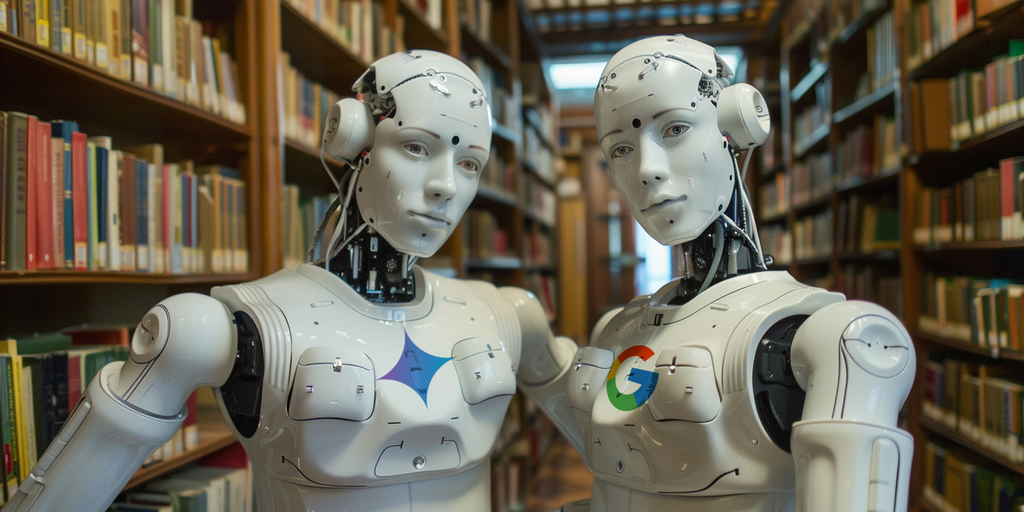
Google has made good on its promise to open up its most powerful AI model, Gemini 1.5 Pro, to the public following a beta release last month for developers.
Google’s Gemini 1.5 Pro is able to handle more complex tasks than other AI models before it, such as analyzing entire text libraries, feature-length Hollywood movies, or almost a full day’s worth of audio data. That’s 20 times more data than OpenAI’s GPT-4o and almost 10 times the information that Anthropic’s Claude 3.5 Sonnet is capable of managing.
The goal is to put faster and lower-cost tools in the hands of AI developers, Google said in its announcement, and “enable new use cases, additional production robustness and higher reliability.”
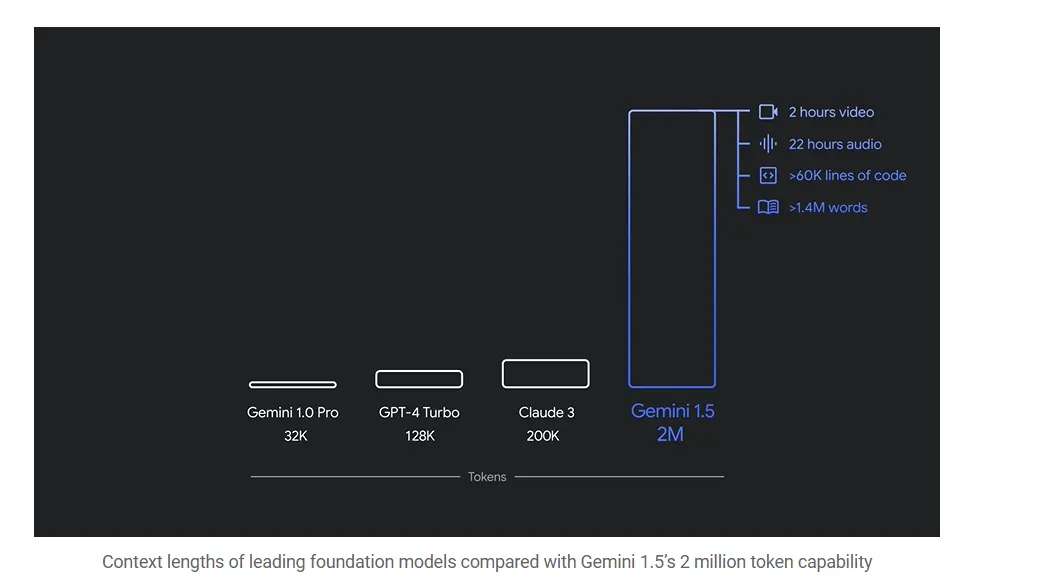
Google had previously unveiled the model back in May, showcasing videos of how a select group of beta testers were capable of harnessing its capabilities. For example, machine-learning engineer Lukas Atkins fed the model with the entire Python library and asked questions to help him solve an issue. “It nailed it,” he said in the video. “It could find specific references to comments in the code and specific requests that people had made.”
Another beta tester took a video of his entire bookshelf and Gemini created a database of all the books he owned—a task that is almost impossible to achieve with traditional AI chatbots.
Gemma 2 Comes to Dominate the Open Source Space
But Google is also making waves in the open source community. The company today released Gemma 2 27B, an open source large language model that quickly claimed the throne of the open source model with the highest-quality responses, according to the LLM Arena ranking.
Google claims Gemma 2 offers “best-in-class performance, runs at incredible speed across different hardware and easily integrates with other AI tools.” It’s meant to compete with models “more than twice its size,” the company says.
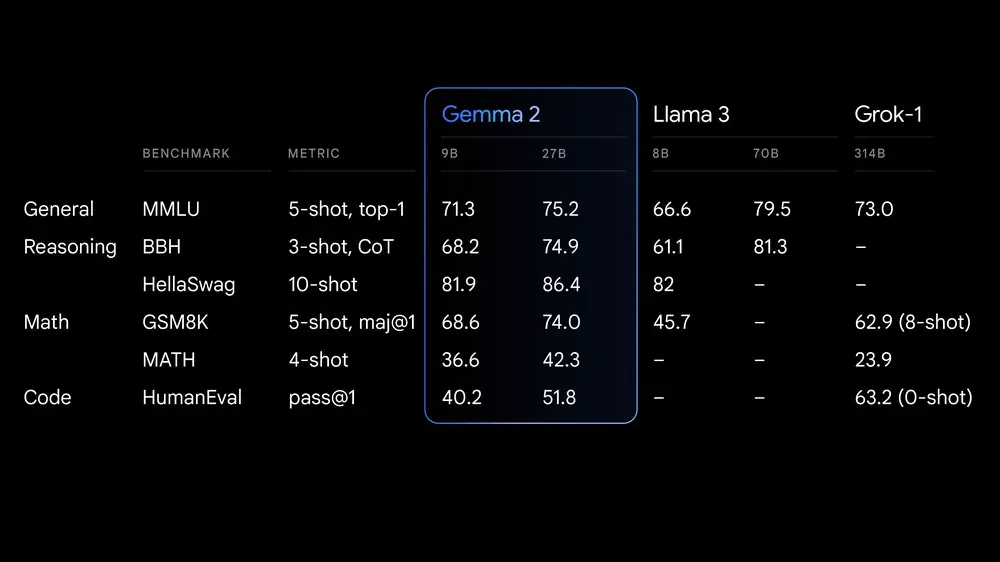
The license for Gemma 2 allows for free access and redistribution, but is still not the same as traditional open-source licenses like MIT or Apache. The model is designed for more accessible and budget-friendly AI deployments in both its 27B and and the smaller 9B versions.
This matters for both average and enterprise users because, unlike what close models offer, a powerful open model like Gemma is highly customizable. That means users can fine tune their models to excel at specific tasks, protecting their data by running such models locally.
For example, Microsoft’s small language model Phi-3 has been fine tuned specifically for math problems, and can beat larger models like Llama-3 and even Gemma 2 itself in that field.
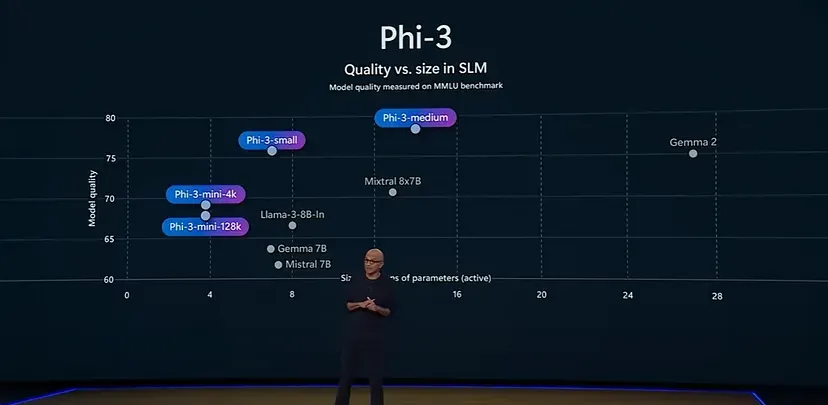
Gemma 2 is now available in Google AI Studio, with model weights available for download from Kaggle and Hugging Face Models with the powerful Gemini 1.5 Pro available for developers to test it on Vertex AI.
Generally Intelligent Newsletter
A weekly AI journey narrated by Gen, a generative AI model.
Source link

Taliban jailed 8 traders for holding and using crypto

Solana Struggles to Rise Amid Bitcoin Price Uncertainty

Developing in Web 3.0 Is on the Cusp of a Breakthrough

Digital Shovel Sues RK Mission Critical for Patent Infringement on Bitcoin Mining Containers

crypto will get positive regulation ‘no matter who wins’ election

Toncoin (TON) v Cardano (ADA): On-chain Data Show Gains

Crypto Markets Like Their Odds With Kamala Harris

How Financial Surveillance Threatens Our Democracies: Part 2

CleanSpark’s amped hashrate mined 445 Bitcoin in June

Ripple and Coinbase Use Binance Win to Contest SEC Claims

DCG, Top Executives Renew Push to Get New York AG’s Civil Fraud Suit Dropped

Introducing Satoshi Summer Camp: A Bitcoin Adventure for Families

US judge approves expedited schedule for Consensys suit against SEC

2 Cryptocurrencies To Buy Boosting Into Top 10

Bitcoin Miners Slow Down Selling In July, What This Could Mean For Price

Bitcoin Dropped Below 2017 All-Time-High but Could Sellers be Getting Exhausted? – Blockchain News, Opinion, TV and Jobs

What does the Coinbase Premium Gap Tell us about Investor Activity? – Blockchain News, Opinion, TV and Jobs
BNM DAO Token Airdrop

NFT Sector Keeps Developing – Number of Unique Ethereum NFT Traders Surged 276% in 2022 – Blockchain News, Opinion, TV and Jobs
A String of 200 ‘Sleeping Bitcoins’ From 2010 Worth $4.27 Million Moved on Friday
New Minting Services

Block News Media Live Stream

SEC’s Chairman Gensler Takes Aggressive Stance on Tokens – Blockchain News, Opinion, TV and Jobs

Friends or Enemies? – Blockchain News, Opinion, TV and Jobs

Enjoy frictionless crypto purchases with Apple Pay and Google Pay | by Jim | @blockchain | Jun, 2022

How Web3 can prevent Hollywood strikes

Block News Media Live Stream

Block News Media Live Stream

XRP Explodes With 1,300% Surge In Trading Volume As crypto Exchanges Jump On Board

Block News Media Live Stream
Trending

 Altcoins2 years ago
Altcoins2 years agoBitcoin Dropped Below 2017 All-Time-High but Could Sellers be Getting Exhausted? – Blockchain News, Opinion, TV and Jobs

 Binance2 years ago
Binance2 years agoWhat does the Coinbase Premium Gap Tell us about Investor Activity? – Blockchain News, Opinion, TV and Jobs
- Uncategorized3 years ago
BNM DAO Token Airdrop

 BTC1 year ago
BTC1 year agoNFT Sector Keeps Developing – Number of Unique Ethereum NFT Traders Surged 276% in 2022 – Blockchain News, Opinion, TV and Jobs

 Bitcoin miners2 years ago
Bitcoin miners2 years agoA String of 200 ‘Sleeping Bitcoins’ From 2010 Worth $4.27 Million Moved on Friday
- Uncategorized3 years ago
New Minting Services

 Video2 years ago
Video2 years agoBlock News Media Live Stream

 Bitcoin1 year ago
Bitcoin1 year agoSEC’s Chairman Gensler Takes Aggressive Stance on Tokens – Blockchain News, Opinion, TV and Jobs

